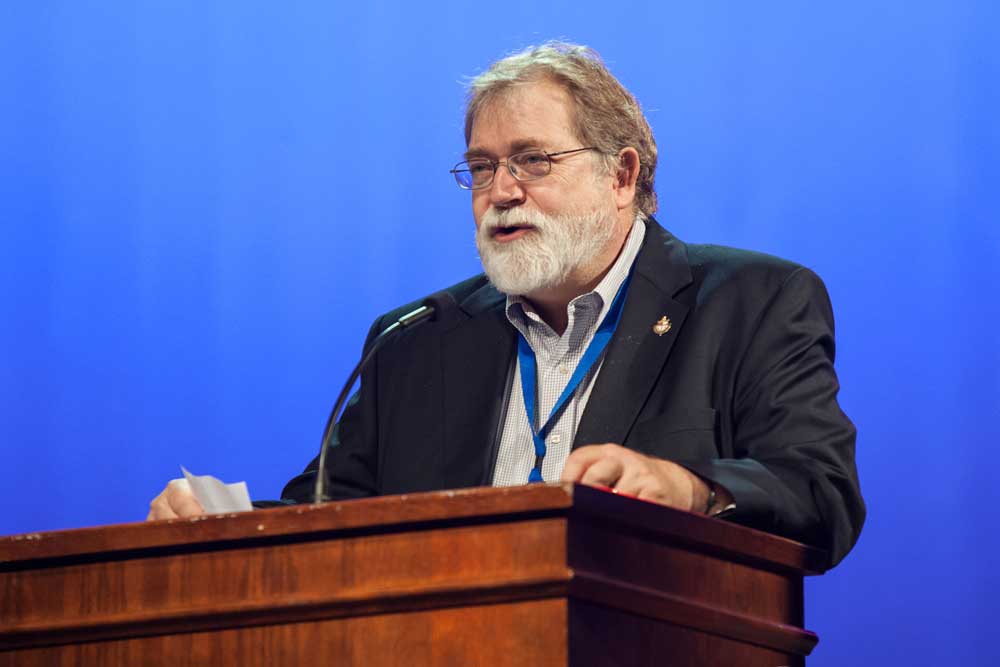This is the word that came to Jeremiah from the LORD: “Go down to the potter’s house, and there I will give you my message.” So I went down to the potter’s house, and I saw him working at the wheel. But the pot he was shaping from the clay was marred in his hands; so the potter formed it into another pot, shaping it as seemed best to him.” Jeremiah 18:1-3
Dear brothers and sisters in Christ, friends of the Anglican realignment,
Is it really possible to change? I believe this is one of the questions at the heart of the Anglican realignment before us. This question is at the heart of the crisis of false teaching and un-Biblical practices within the Anglican Communion. From the standpoint of those championing unilateral changes to Biblical teaching on human sexuality, the question is whether those who hold to Biblical teaching on human sexuality will change their thinking and accommodate revisions. Can misguided, misinformed, undereducated and homophobic Anglicans be persuaded through “facilitated discussions” (a.k.a. Continuing Indaba or reconciliation) to relent, soften their interpretation of scripture and recognize that we live in a new cultural context—especially in the West—where there will be no platform for the Gospel (so it is believed) unless and until the church accommodates on issues of human sexuality?
I’ve just been with friends in the UK on the way back from classes I’m taking on that side of the pond. The Church of England is under tremendous pressure from the government to accommodate its practice to the new Gay Marriage law. Many believe that the Archbishop of Canterbury has bought the Church some time through the promise of two years of “facilitated discussions” (a.k.a. Continuing Indaba or reconciliation) on this subject. Which is more likely to happen at the end of these facilitated conversations: a firm but gracious biblical refusal to accommodate, or a caving in to the liberal agenda, with perhaps some provision for those orthodox who conscientiously object? If the latter, how long would it take before a civilly married gay clergy couple would challenge whatever provisions there may be for those orthodox who conscientiously object? How long did it take Canon Jeremy Pemberton to challenge the Church of England Bishops’ Letter prohibiting clergy from marrying under the new Gay Marriage law?
How long would it be before a civilly married gay clergy couple would walk into an Anglican church where the Rector or Vicar is known to object, demand a “marking” ceremony, and when the objection comes, take it right up to the European Court of Human Rights on an Article 9 violation—to nullify whatever provision the Church has just enacted for those who conscientiously object? What then? Will the orthodox simply cave in at that point and accommodate? Only time will tell.
Is it really possible to change? From the standpoint of Anglicans who affirm the traditional Anglican formularies—the Bible, the Creeds, the Ecumenical Councils of the undivided Church, the 39 Articles and the Jerusalem Declaration—the issue is not sex. That is merely the tip of the iceberg! It is the preservation of the unchanging Gospel of Jesus Christ which is at stake in the accommodation of Anglicanism to changing western cultural norms. Can the churches responsible for unilateral and un-Biblical changes in teaching on human sexuality really change—can they repent? Both The Episcopal Church and the Anglican Church of Canada have actually accelerated those un-Biblical practices that they formally instituted in 2003. The utter failure of the Anglican Communion authorities to discipline these churches for more than ten years is not a promising trajectory. With the Mother Church of the Communion now following in their footsteps, the GAFCON movement and its Jerusalem Declaration have become an increasingly important “Potter’s house” (Jeremiah 18:1-3) for Anglicans who wish to remain both faithful to Apostolic teaching and practice, while proclaiming the unchanging Gospel of Jesus Christ in increasingly relevant ways to an ever changing world. In fact, as I have written recently, the recovery of genuine Anglican conciliarism through the GAFCON movement makes such reformation of Anglican practice and mission increasingly possible.
Is it really possible to change? On the way back from the UK a friend and I went to the evening service at St. Ebbes in Oxford. Before a packed sanctuary of mostly college students and young adults, the Rev. Vaughan Roberts preached from Romans 8 on “How can I become a better person? He really touched a nerve when he spoke about how one might deal with the “irregular,” unlovely and even annoying people around us. The law says “Thou shalt not kill.” But is it really much of a change to resolve not to murder those annoying people around us? Hardly. It is the Holy Spirit who takes us much deeper, convicting us of both the attitudes and habits of the heart that we need to change in our relationships toward others—and then the same Holy Spirit who gives us the grace to overcome them and relate to others as Jesus would if he were in our shoes! It’s the same message Paul brings from the frustration of Romans 7:21-24 to the promise of change in Romans 8:1-3. (Check out this week’s Anglican Perspective video on how we can overcome the residue of original sin that lives on in our lives (Article 9))
Whether we are dealing with the need for change in Anglican Communion structures, or the change we need in our own churches to enable us to move from maintenance to mission, or the change we need in our own hearts to live and to love others as Jesus would—we need to go to the Potter’s House and put ourselves in his hands, in the hands of the Holy Spirit—where real change is always possible!


